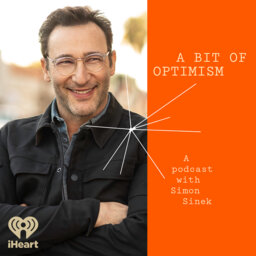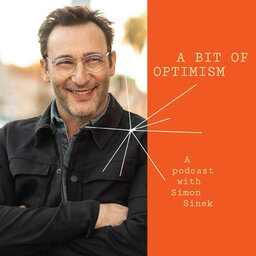Leadership with Bob Chapman
I imagine a world in which the vast majority of people wake up inspired, feel safe wherever they are, and end the day fulfilled by the work that they do. Bob Chapman, legendary CEO of manufacturing company Barry-Wehmiller, has done more than most other leaders to bring that vision to life. A mentor of mine, I asked him to share his thoughts on Leadership. This is… A Bit Of Optimism
YouTube: http://youtube.com/simonsinek
Facebook: https://www.facebook.com/simonsinek
Linkedin: https://linkedin.com/in/simonsinek/
Instagram: https://instagram.com/simonsinek/
Twitter: https://twitter.com/simonsinek
Pinterest: https://www.pinterest.com/officialsimonsinek/
In 1 playlist(s)
A Bit of Optimism
The future is always bright...if you know where to look. Join me each week for A Bit of Optimism - …Social links
Follow podcast
Recent clips

Revisited: We Cannot Heal Alone In The Loneliness Epidemic with Rabbi Sharon Brous
34:12

Confident Ignorance with rapper, novelist, and filmmaker Logic
1:00:19

Wealth Is Togetherness with community organizer Kennedy Odede
37:11
 A Bit of Optimism
A Bit of Optimism